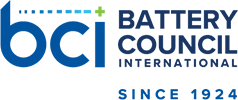Initiative Will Boost Ongoing Efforts to Improve Battery Recycling in Developing Countries as Global Energy Storage Demand Is Set to Increase Thirteen-Fold by 2024
LONDON (Sept. 9, 2019) — The lead production and lead battery industries have joined forces to advance environmentally responsible production and recycling worldwide to keep pace with the growing demand for energy storage.
Industry associations representing businesses involved in advanced lead and lead battery manufacturing and lead production have signed a memorandum of cooperation. It is designed to help improve standards in those countries where informal recycling is dominant, while maintaining the highest standards worldwide.
The agreement is to formalize on-going industry efforts and collaboration to improve recycling practices in low and middle-income countries, where regulations and industry safety standards are either inadequate, non-existent or ineffectively enforced.
Improper and unregulated battery recycling of all battery chemistries can cause serious health risks for employees and nearby communities. However, the value of the lead and other materials from recycling used batteries drives some communities to undertake improper recycling despite the risks.
In Europe and the United States, lead battery manufacturing and recycling is rigorously regulated and takes place within stringent safety and environmental standards that deliver a closed-loop circular economy where more than 99 per cent of used batteries are recycled. However, as demand for energy storage using batteries is set to grow it could be matched by an uptick in the informal recycling sector in other regions of the world.
Battery Council International Executive Vice President Kevin Moran, speaking on behalf of the four associations, said, “We want to ensure that manufacturing and recycling of lead batteries worldwide meet standards that protect human health and the environment. There must be an end to the dangerous and inappropriate use of substandard recycling operations, but this will take time and will require a coordinated effort involving multiple stakeholders.
“We acknowledge that we can play a significant role by using our commercial influence to encourage environmentally sound practices, by sharing best practice with governments, regulators and NGOs and by undertaking appropriate levels of due diligence to reduce the probability that battery raw materials produced through unsound practices do not end up in our supply chain.”
Rene Schroeder, EUROBAT executive director, said, “European battery manufacturers are committed to protecting the environment and employees. All batteries are essential in Europe’s ambition to decarbonize its energy and mobility systems. The material stewardship program for lead batteries, which we’re supporting, is an important sign of our commitment to an environmentally and socially sustainable lead battery industry, which operates to the highest standards.”
The battery and lead manufacturing industries, represented by the International Lead Association, Battery Council International, the European battery association EUROBAT and the Association of Battery Recyclers, have signed a binding memorandum of cooperation as part of a program of responsible material stewardship.
Building on this agreement, the associations’ joint project team will develop principles and guidelines designed to:
- Promote responsible sourcing and prevent material entering the market from recyclers who fail to establish controls and processes to protect public health and the environment;
- Encourage continuous improvement in the environmental and health and safety performance of member companies;
- Encourage the development of producer responsibility programs so that there is market driven collection of the companies’ batteries at end-of-life and recycling under environmentally sound conditions;
- Support best practice sharing and provide support to improve health and environmental standards in low and middle-income countries;
- Enhance transparency by reporting progress to interested stakeholders.
Dr. Andy Bush, managing director of the International Lead Association added, “The companies represented by our associations are committed to setting the highest standards of health and safety and good environmental stewardship. We want these standards to apply worldwide to support sustainable lead battery value chains. We acknowledge that to be successful in this goal we must work with others and widen the outreach of our initiative by involving associations representing member companies with interests in Asia, Africa and beyond.”
About ILA
The International Lead Association is the trusted global trade association for the lead industry and its member companies are at the forefront of the mining, smelting, refining and recycling of lead. ILA represents the producers of about 3 million tonnes of lead. The association is working towards a vision of a sustainable global lead industry that is recognized for the positive contribution it makes to society.
About Battery Council International
Battery Council International is the North American trade association representing the lead-based battery manufacturing, supply, recycling and distribution companies. For more information on the association, visit www.batterycouncil.org.


